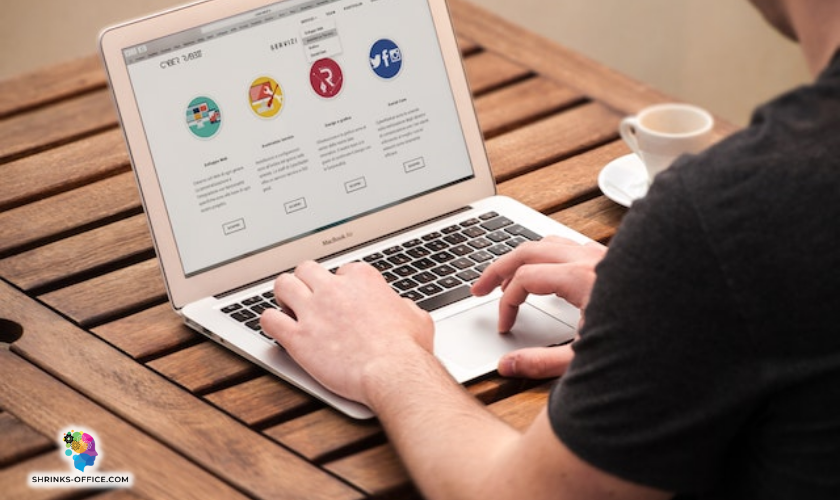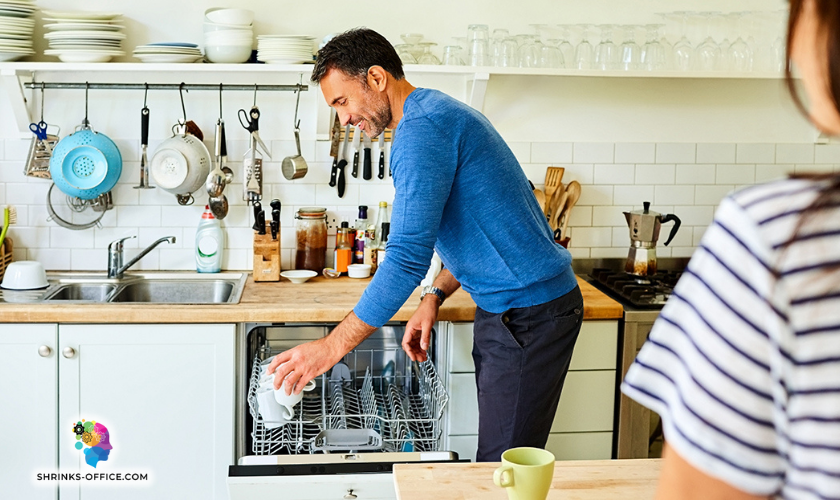In today's fast-paced world, finding moments of mindfulness can be a challenge. Embracing "The Power of Now"...

Learning how to help wife with postpartum depression is crucial, as Postpartum Depression (PPD) is a serious condition affecting many new mothers. Understanding and supporting your wife during this time is vital.
We will delve into various strategies dads can use to assist their wives in coping with postpartum depression, focusing on recognizing the signs and offering practical support.
Here are some effective ways to aid your wife during her struggle with postpartum depression.

From local resources, you can learn that PPD is a form of depression that affects most women after childbirth. Symptoms of PPD can include feeling overwhelmed, sadness, fatigue, anxiety, changes in appetite, lack of sleep and concentration, and even thoughts of self-harm. [1]
PPD is not something your wife can just “snap out of” but rather a serious medical condition that should be treated with the help of a professional or a family doctor.

PDD can be isolating, so simply taking the time to be there and listen can be very beneficial. Ask her to tell you what she is feeling and thinking, and focus on what she has to say.
Encourage her to open up and discuss her feelings without judgement or criticism. Let her know it's normal to have negative thoughts, and that she can ask for your help.
Show her that you're there for her, no matter what. Listen to her, understand her feelings, and be present with her. Offer words of encouragement, care, and understanding. Validate her experiences and reassure her that she's doing the best she can. Don’t pressure or try to “fix” her; instead, allow her to move at her own pace and make sure she knows it's okay to feel guilty, but also okay to ask for help.
In addition, postpartum mood disorders affect between 2% and 20% of non-gestational parents, and taking care of a partner with PDD increases your risk by 50%. So, be mindful of your own needs during this time. Make sure to take breaks and give yourself time to rest and relax. Doing so will make you better equipped to help your wife. [2]

Caring for a new baby can be exhausting, especially if your wife is experiencing postpartum depression. One way to help her is by offering to take on some of the household chores. It can include tasks like grocery shopping, cleaning, laundry, and diaper changes. As a result, your wife will have an uninterrupted sleep and can spend quality alone time with you.
Also, if you're not in a position to help, persuade friends and family to lend a helping hand on some of the tasks around the house. It provides her with the support and encouragement she needs while she’s struggling with her mental illness.

Although it's important, it doesn't necessarily mean sitting around and talking all day. You can take part in activities that she enjoys. This could be anything from a walk outside or visiting a park to watching a movie or cooking together. Being there for her and participating in her activities will help her feel supported and more connected to you.
By spending time with your wife and engaging in activities that she enjoys, you'll be able to understand how she is feeling and offer the right support. This can help your wife's recovery and ultimately lead to a stronger bond between the two of you.
PDD can make your partner often feel overwhelmed about her parenting. So, reassuring your partner may not seem like much, but it can make a big difference in their mental health and overall well-being.
Acknowledge all the hard work she has put in to take care of the baby and let her know that you recognize the effort she's making. Speak positively about her parenting, and provide positive reinforcement whenever you can.
You cannot expect a mother to get over PDD by herself. To truly recover, lifestyle changes and home remedies cannot replace therapy. Encourage your wife to speak with a therapist about treatment options such as online therapy, medication, or both.
The therapist would likely suggest the Cognitive Behavioural Analysis System of Psychotherapy (CBASP), which is an evidence-based psychotherapeutic approach used to treat chronic mental health issues, including PDD. In CBASP, individuals learn coping skills to manage their emotions and gain insight into their negative thoughts and behaviors. [3]
Additionally, support groups may be beneficial, as they offer a safe space to talk and connect with other mothers experiencing similar issues.
Postpartum depression (PPD) can have a significant impact on marriages. With proper diagnosis, treatment, and support, a woman can recover from postpartum depression and lead a healthy and fulfilling life. It can take some time for the woman to overcome postpartum depression, so be patient throughout the entire recovery process.
The best way to help your wife with postpartum depression is by offering emotional support and understanding, being there to listen, and helping out with household chores. Additionally, reminding her that she's a good parent can help to build her confidence and seek professional help.
Postpartum depression greatly impacts the relationship between spouses, particularly if the mom is suffering from the condition. PDD can cause a wide range of challenges in a marriage, including decreased intimacy, communication issues, and difficulty in providing mutual care. [1]
First and foremost, PDD can cause an emotional disconnect between partners. It may manifest as a lack of interest in sex or even an inability to perform sexual activities. PPD can lead to a breakdown in communication, where one partner no longer feels able to communicate their feelings or share in the emotions of their partner. [1]
The period it takes for a woman to recover from postpartum depression (PPD) can vary significantly. It’s important to understand that recovery is not a linear process, and the timeline can be longer or shorter than expected.
Generally, women experience the most severe symptoms within the first six weeks of giving birth. However, some women may find that their PDD persists beyond this period, while others may feel better in as little as two or three weeks. [1]
In today's fast-paced world, finding moments of mindfulness can be a challenge. Embracing "The Power of Now"...
In our fast-paced world, finding moments of tranquility can be a challenge. Meditation apps offer a convenient...
In our fast-paced world, taking time for self-reflection and mindfulness is essential for well-being. Journaling can be...
In today’s fast-paced world, managing stress has become an essential aspect of maintaining overall well-being. Two popular...
Dissociation can be a challenging experience, especially the one that happens at work. Are you experiencing dissociation?...
Bionic reading transforms the reading experience for ADHD individuals by guiding the eyes for focus and understanding. Dive into the world of bionic reading.
Explore the complexities of postpartum depression and genetics in our blog 'Is Postpartum Depression Hereditary?' for insights into maternal mental health.
